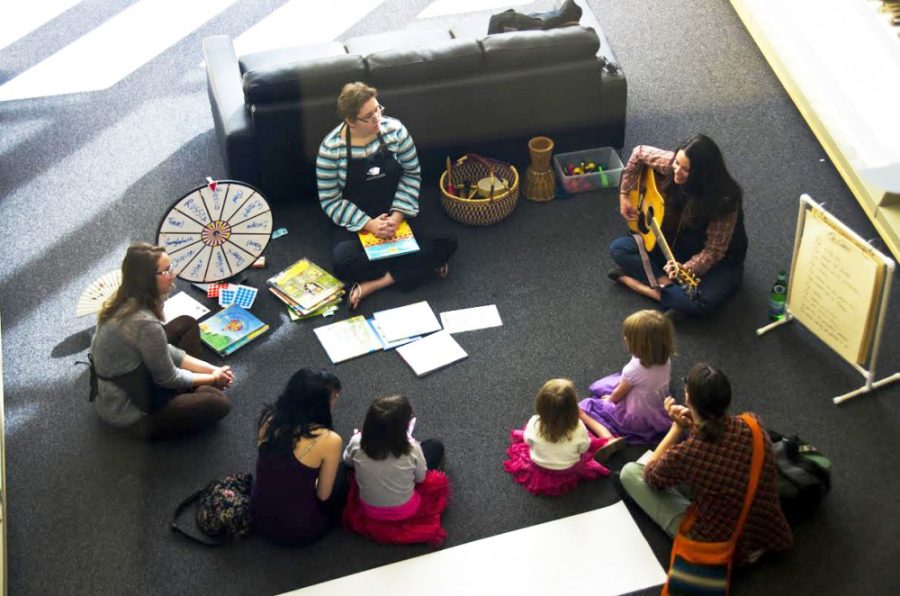The University of Arizona Poetry Center and UA honors students from the College of Humanities know that teaching can be the best way to learn.
The Poetry Center holds “Family Day” one Saturday each month. The community outreach event is designed to be enjoyable for everyone from kindergartners to high schoolers. This is one of the many opportunities for honors students to interact with an audience of various ages to explore poetry and teaching methods in a group environment.
The bonus of sharing the varieties of language and poetry through these outreach programs is that the honors students are learning through teaching others, rather than simply sitting in a classroom, organizers said.
“There’s something about teaching in front of a group that you just can’t learn in a classroom, exactly,” said Sarah Minor, the interim education programs coordinator at the Poetry Center.
The program is a purposeful exploration of the process of teaching and learning, underlining awareness through opportunities for hands-on learning. Its goal is not to popularize poetry, but rather to show how poetry can connect students with history, as well as to show how it can be used in everyday life. The challenge for the honors students is to create a variety of lesson plans that engage students of a wide range of ages, Minor said.
This weekend’s event will center on communication and how the medium used to communicate can complicate language and can become poetry, she added.
One topic at the event will discuss how the use of typewriter or an antiquated mode of communication can change what work is produced. Hands-on activities and workshops for the visitors to engage in will include storytelling, bookmaking and movement.
The events delve into how teachers can push students to learn through play. The setup has families working together and exploring the ideas and projects as a group.
“Introducing poetry as a way of understanding another subject, or another human who is writing, or as a way to bring an art form into your life that you weren’t familiar with really does affect people a lot,” Minor said. “I see poetry sort of making the past more real.”









